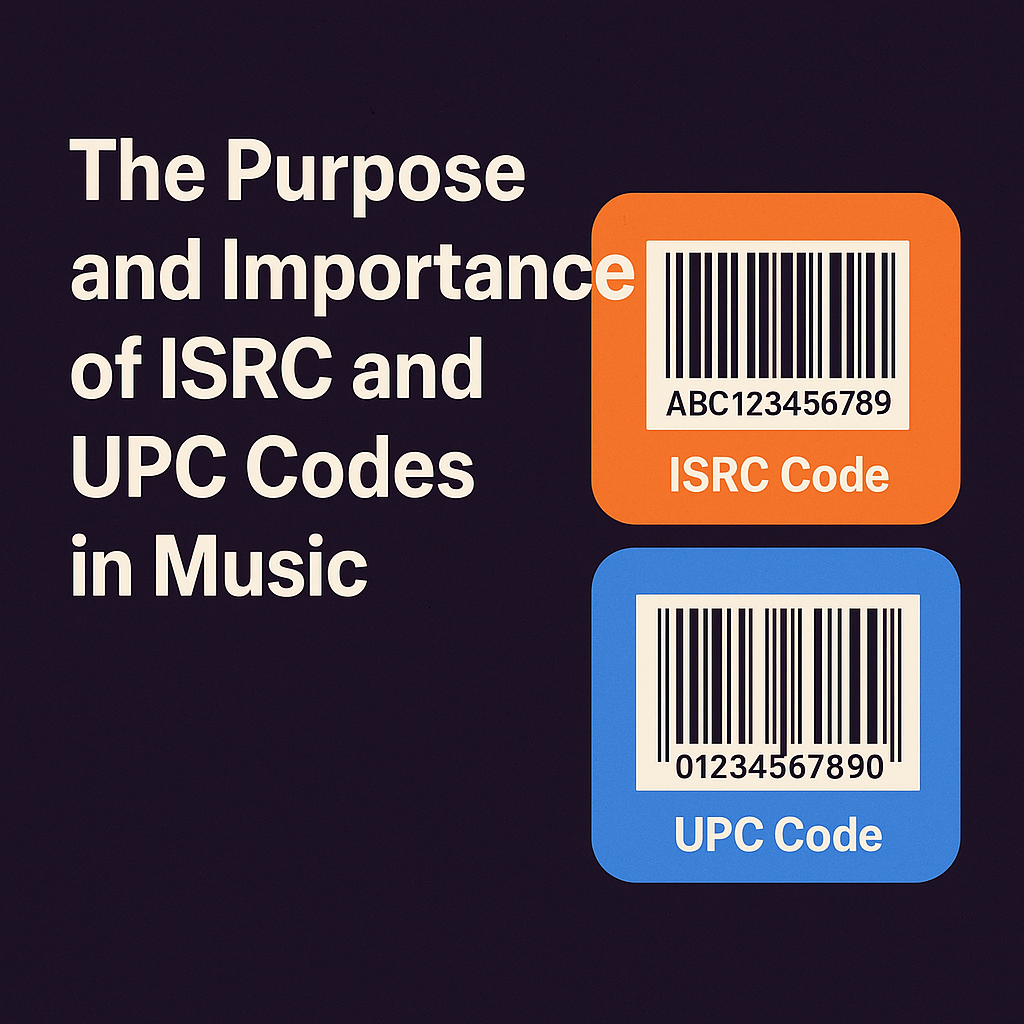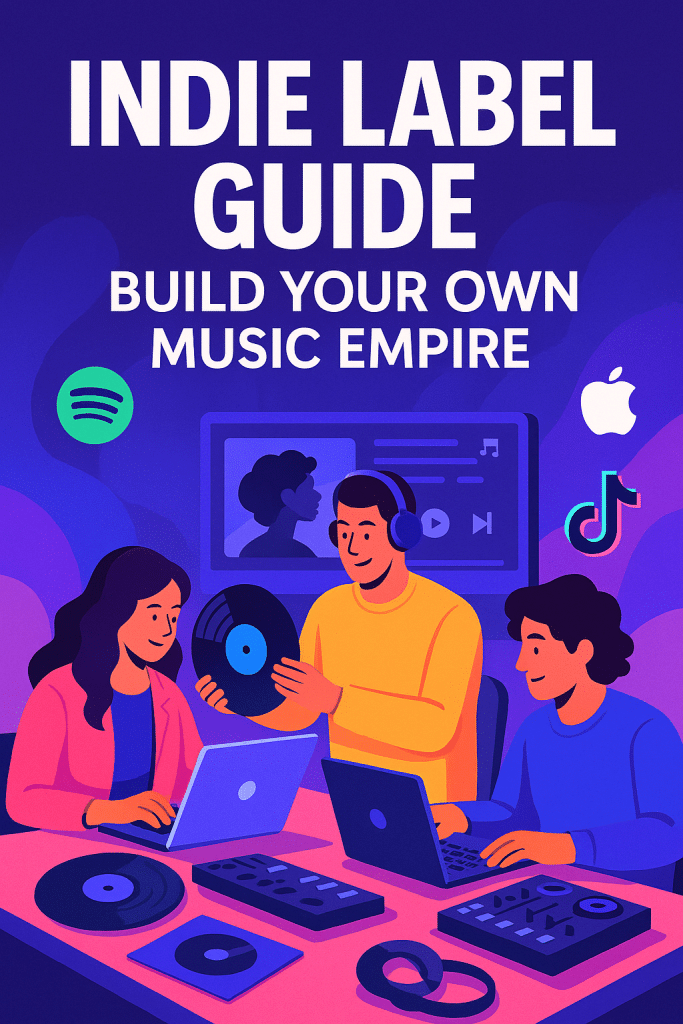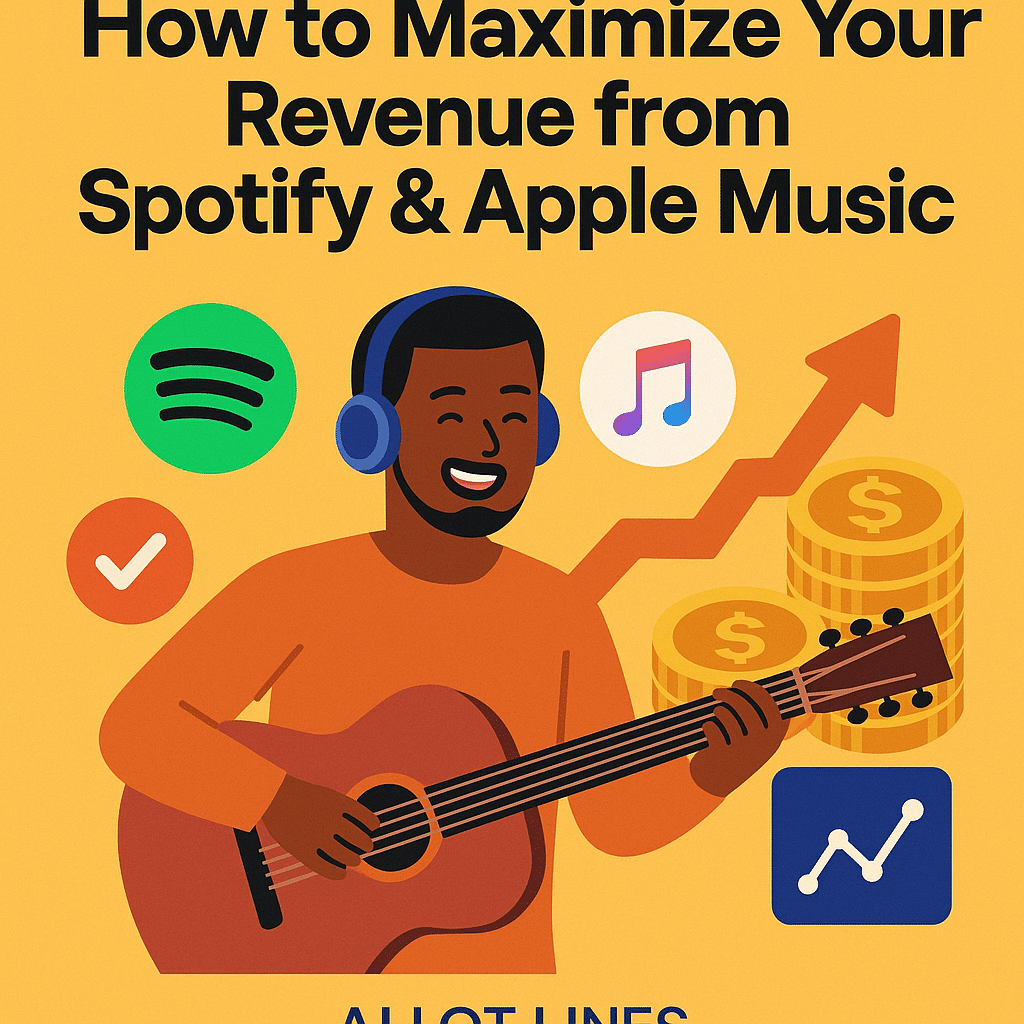In today’s digital music landscape, understanding ISRC and UPC codes is essential for independent artists, record labels, and distributors. These codes are more than technical identifiers—they’re the backbone of music monetization, reporting, and global distribution. If you’re releasing music online, knowing how these codes work can maximize your revenue and protect your rights.
What is an ISRC Code?
ISRC stands for International Standard Recording Code. This is a unique identifier assigned to each individual sound recording (not the song itself, but the actual recorded performance). Think of it like a fingerprint for your track.
Why ISRC Matters:
- Tracks Royalties Accurately: Every time your song is streamed, downloaded, or played on radio, the ISRC is used to track it.
- Global Recognition: Platforms like Spotify, Apple Music, and YouTube use ISRCs to identify and report your plays.
- No Duplicates: Even if your song title is common, the ISRC distinguishes your recording from others.
What is a UPC Code?
UPC stands for Universal Product Code. It is a barcode used to identify a product, such as an album, EP, or single. Unlike ISRC, which identifies a single recording, UPC is used to identify the entire release.
Why UPC Matters:
- Enables Sales Tracking: Digital stores and physical retailers use UPCs to track purchases and inventory.
- Organizes Releases: Helps distributors manage your catalog and royalty distribution more efficiently.
- Required for Distribution: Most digital distribution platforms require a UPC to release your music.
ISRC vs. UPC: What’s the Difference?
| Feature | ISRC Code | UPC Code |
|---|---|---|
| Stands For | International Standard Recording Code | Universal Product Code |
| Identifies | Individual sound recordings | Albums, EPs, or Singles |
| Used For | Tracking plays, reporting royalties | Selling and organizing releases |
| Who Uses It | Streaming platforms, PROs | Digital stores, distributors |
Why Every Artist Should Care
Whether you’re an independent artist or managing a label, having correct ISRC and UPC codes is non-negotiable. Here’s why:
- You get paid: Without ISRCs, royalties can go untracked or misallocated.
- Your releases are discoverable: UPCs help your music appear properly on platforms.
- You stay organized: Avoid duplication and confusion in your catalog.
- You protect your rights: These codes help legally associate you with your work.
How to Get ISRC and UPC Codes
You can obtain ISRCs and UPCs through:
- Your distributor (like Allot Lines)
- National ISRC agencies (e.g., RIAA in the US)
- GS1 organizations for official UPCs
If you’re releasing through Allot Lines, we provide both ISRC and UPC codes automatically with your distribution, ensuring your music is professionally tracked and monetized.
Conclusion
In the music business, details matter. ISRC and UPC codes are small but mighty tools that ensure your creative work is properly managed, tracked, and monetized. As the industry continues to evolve digitally, understanding and using these codes effectively will keep your music professional, protected, and profitable.






